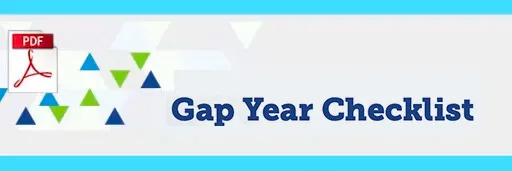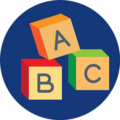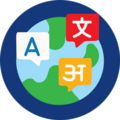Career Exploration & Planning

Building a Foundation for Success
Below is our comprehensive career exploration and planning hub. We have developed a curated collection of reputable resources aimed at guiding students and young adults through the journey of discovering potential career paths, understanding the necessary steps, and ultimately crafting a roadmap to success. Regardless of the career path, there are resources to guide informed decision making.
Contact Us
Career Resources
Careers of Interest
Students across Wayne County have expressed great interest in the career pathways listed below. Because of this our team has developed the resources below. Click on the tab to explore local resources and opportunities in Wayne County and surrounding communities. Check back often as we continue to grow our library of career pathway specific resources.
High School Resources
9th Grade Checklist
Welcome to High School!
- Use a planner to stay on top of assignments & manage your time effectively
- Study a little every day
- Talk to your teachers when you need help. They want you to succeed!
- If your school offers the PSAT, take it seriously to determine your strengths & weaknesses.
- Choose electives that you are interested in; you may learn a new skill or find a future career option.
- Make a 4-year high school Educational Development Plan (EDP). Ask your school counselor for help if you need it.
- Discuss your ideas with your parents about future courses & your goals for your life after high school.
Next Steps
- Meet with your counselor in the first semester to discuss your college & career plans.
- Get involved in your school & community by joining extracurricular clubs or sports, or volunteering.
- Take a career assessment using Xello, You Science, Pathfinder, or use a resource on Wayne RESA's Career Counseling page.
- Ask your counselor about Career Technical Education (CTE) or other courses that match your career interests.
- Find opportunities to do a job shadow or volunteer for careers that interest you.
- Work hard to get strong grades, which will help you with your future choices.
- Update your Educational Development Plan (EDP) as your career interests evolve
- Keep a record or folder of your achievements to use on a resumé or a college application.
What to do in the Summer
- Continue to research careers that interest you.
- Participate in a career camp.
- Find a summer job.
- Visit college campuses.
10th Grade Checklist
Congratulations on finishing your first year of high school!
Sophomore year can be more challenging than freshman year. Be prepared with these tips:
- Use good study & time management strategies.
- Continue to challenge yourself to get strong grades and take challenging courses.
- Try your best on the PSAT, it can help you perform better when you take the SAT next year.
- Get to know your teachers, they are here to help you with your challenges.
- Take career assessments or continue researching careers on Xello, You Science, Pathfinder or workfore.resa.net (Click on Career Counseling).
- Update your Educational Development Plan (EDP) yearly as your interests evolve.
- Create a college list & explore admission requirements. Don't forget about trade schools!
Next Steps
- Talk with college/trade school representatives when they visit your school.
- Find out the admissions requirements for the colleges/trade schools that you are interested in.
- Participate in extracurricular activities in your school and/or volunteer in your community.
- Look for ways to gain career exposure: job shadow, Career Technical Education, specific electives, volunteer.
- Participate in College & Career Fairs.
- Create a resumé & list your accomplishments
- Discuss your career goals with your parents and your school counselor
- Visit college campuses
What to do in the Summer
- Continue to research careers.
- Arrange a job shadow or volunteer.
- Visit college campuses.
- Find a summer job.
- Update your accomplishment folder & resumé.
- Ask family members about their career journey & what they like about their career.
11th Grade Checklist
Junior Year is a pivotal year in your school career
Start laying the foundation for your future with these tips:
Fall
- Take a rigorous course load to prepare you for your future career, consider Career Technical Education (CTE) courses for a jump start to your career.
- Sign up for the fall PSAT. Inquire with your school counselor for details.
- Meet with your counselor to discuss college admission requirements and evaluate if you are on track.
- Learn more about training options by talking to college admission representatives & reviewing their websites.
- Continue to be involved with school clubs or athletics. Working a part-time job is also a valuable experience.
- Continue to explore careers and how they are compatible with your strengths, interests & values.
- Update your Educational Development Plan (EDP) with your goals, career & college research.
- Research the training options: apprenticeships, trade schools, community colleges & universities.
- Attend college fairs & open houses.
Winter
- Meet with your counselor to select courses for senior year based on your career goals.
- Continue to research training options. Attend college fairs & open houses.
- Determine the training requirements for the careers that interest you.
- Create a list of colleges, trade schools and/or apprenticeships that interest you.
- Plan college visits in the second semester. Include schools that vary in size, environmental settings, and program offerings.
Spring
- Take the SAT seriously, which is offered by the school; it may be required for some college applications.
- Review some college applications for the colleges of interest. See what information is required. If they ask for letters of recommendation, you can discuss this with your school counselor & teachers before summer.
- Create or update your résumé with your list of paid and unpaid work experience. Include extracurricular activities, awards, & special skills. This will be helpful when you need to complete college applications in the fall of senior year.
- Research summer experiences on college campuses or apply for summer employment.
Summer
- Research career training options: apprenticeships, trade schools, community colleges & universities.
- Make your summer meaningful by volunteering, working, visiting college campuses, or participating in summer experiences on college campuses.
- Sign up and retake the SAT if you are unhappy with your score.
- Create a list of colleges you want to apply to, noting application due date, required tests, letters of recommendation, essays, etc.
- You can start a rough draft of your college applications as early as August.
12th Grade Checklist
August - September
- Continue to research career training options: apprenticeships, trade schools, community colleges & universities.
- Create a list of training programs you want to apply to, noting application due date, required tests, letters of recommendation, essays, etc.
- You can start a rough draft of your college applications as early as August.
- Sign up to retake the SAT/ACT if the college(s) require a score and you are unhappy with your score from junior year.
- Ask teachers and/or school counselors for letters of recommendation if necessary for the college application.
October
- Complete college applications starting with the earliest deadlines. Some have deadlines in October.
- Your school counselor can help you request a fee waiver if you cannot afford the application fees. Some colleges waive fees in October.
- Finalize your college essay if it is required for your college application. Have an adult review your essay & application before you submit it.
- Send high school transcripts to all colleges that you apply to. If they are all on the Common Application, send the transcript to the Common Application with your Common App ID.
- If test scores are required, make sure they have been sent to the schools you are applying to.
November - January
- Continue to submit applications by the due dates.
- Complete the FAFSA as early as December 1st to find out how much student aid (grants/scholarships/loans) you may qualify for to pay for your schooling.
- Register and retake the SAT/ACT, if needed.
- Keep grades strong in senior year. Many colleges will ask for the first semester's grades before making a decision.
- Send the first-semester transcript if a college requested it.
- Look for scholarships; school counselors can advise you about local opportunities. Check out workforce.resa.net for the state and national scholarship database.
February - May
- Meet with your school counselor to resolve any issues with admission or financial aid.
- Continue to apply for scholarships by the deadline.
- Review acceptance letters & financial aid award letters. Compare them to determine the right for you based on their program offerings, extracurricular activities, student support services, career services, and cost.
- May 1st is the Decision Day deadline. Send in required paperwork and deposit to secure your spot to one college only.
- Send a final transcript to the school you will attend in the fall. Make sure to finish strong so it doesn't jeopardize your acceptance.
Planning Resources
Apprenticeships & Skilled Trades
ApprenticeshipsApprenticeship.govMI Apprenticeship Michigan Talent MUST Careers Skilled Trades ReadinessSee the next steps to become skilled trades ready by reading this | 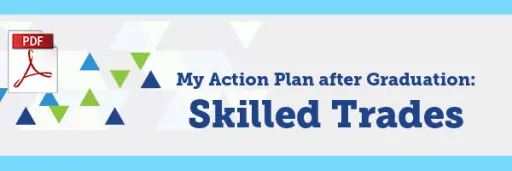 Follow our PDF guide for the next steps to becoming skilled trades ready, such as links to researching skilled trade careers, reviewing program offerings, and checking requirements. Checklist Skilled Trades Guide Skilled Trade Action plan (English) Skilled Trade Action plan (Arabic) Skilled Trade Action plan (Spanish) |
College
College Resource LinksBig FutureCommon Black College App Comm App Hundred & Seven HBCUs Michigan’s Guide to Public University Admissions Virtual Campus Tours Resources en EspañolPreparándose Para la UniversidadRequisitos para solicitar admisión a una Universidad en EEUU Costo de educacion Mi Plan para la Universidad Mi Plan para el Colegio Comunitario | 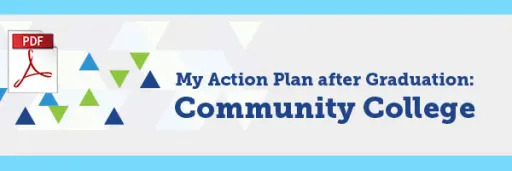 View the next steps and admission checklist in this PDF document for enrolling in a community college. Action Plan After Graduation - Community College (English) Action Plan After Graduation - Community College (Arabic) 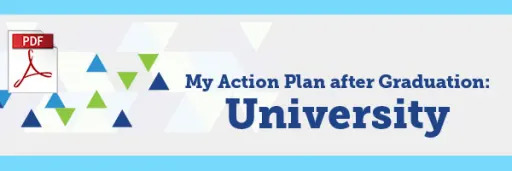 View the next steps and admission checklist in this PDF document for enrolling in a major university. Action Plan After Graduation - University (English) Action Plan After Graduation - University (Arabic) |
Military
The Armed Services Vocational Aptitude Battery (ASVAB) is a multiple-aptitude battery that measures developed abilities and helps predict future academic and occupational success in the military. It is administered annually to more than one million military applicants, high school, and post-secondary students. Explore careers by completing an assessment or searching careers by branch, rank, career cluster, career path, and more. March2Success is your FREE online resource hub, designed to empower users to boost their performance on critical standardized tests. Whether you're gearing up for state exit exams, college entrance exams, or the ASVAB military entrance test, we've got you covered. The U.S. Department of Defense (DoD) offers various opportunities and programs, including educational and training programs, scholarships, internships, and career development initiatives. The DoD aims to equip students with the necessary skills and knowledge to pursue careers in fields related to defense, security, technology, engineering, research, and more. |  My Action Plan After Graduation - Military Service (English) My Action Plan After Graduation - Military Service (Spanish) |
Workforce
Workforce LinksCareerOneStopDetroit at Work Grow Detroit's Young Talent Interview Tips MI Talent Connect Michigan Rehabilitation Services Resume Tips Sample Interview Questions Short Term Skills Training in and Around Wayne County SEMCA Michigan Works! USAJOBS - The federal government's official jobs site Recursos en EspañolCentro de derechos humanos de inmigrantes en MichiganEncontrar un Trabajo | 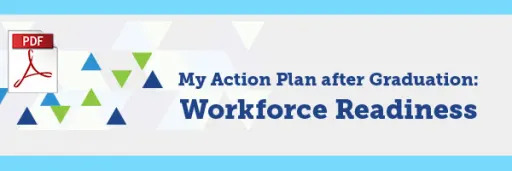 Follow our PDF guide for the next steps to becoming skilled trades ready, such as links to researching skilled trade careers, reviewing program offerings, and checking requirements. Workforce Action Plan (English) Workforce Action Plan (Spanish) |

